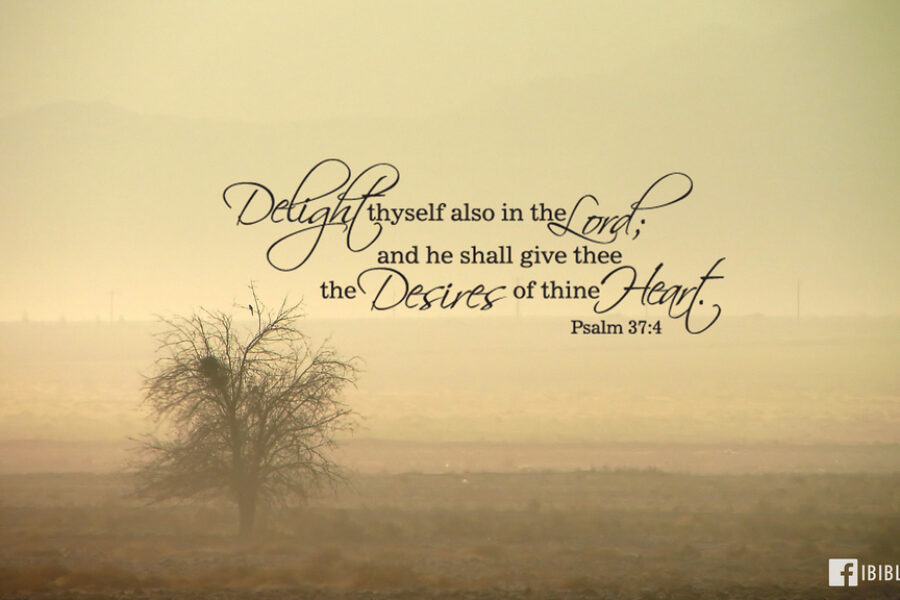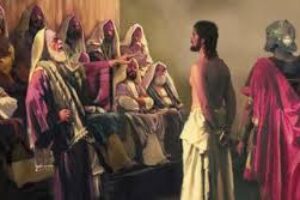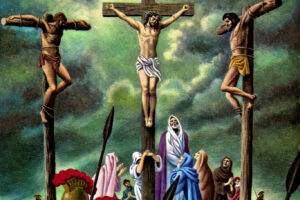When you delight in God, you will have a joyful relationship with him, and he will give you the desires of your heart. Abraham and Moses delighted in the Lord, had fellowship with him, and were given the desires of their heart.
Abraham Delighted in God
The Lord told Abraham, “Go from your country, your people and your father’s household to the land I will show you. I will make you into a great nation and I will bless you; I will make your name great… and all people on earth will be blessed through you” (Gen 12:1-3 NIV). Abraham believed God. Leaving a secure life, surrounded by a supportive extended family, Abraham obeyed God. Abraham was seventy- five years old, when he took members of his family and left for an unknown land based on God’s promise (Gen 12:4).
Abraham Briefly Lapsed in Faith
God also promised Abraham and his wife Sarah a son to be named Isaac, through whom God would establish a covenant to bless all nations. When Abraham was a hundred years old, and his wife age ninety, they wondered how God would fulfill this promise. Because of their ages, Abraham laughed inside. Thinking God needed help to produce a child for her husband, Sarah prevailed upon him to have a child by her young slave named Hagar. She conceived a child with Abraham called Ishmael. The child and his mother turned out to be more trouble than a blessing to Sarah and Abraham. (Gen 16:1-5; 17:15- 21).
God kept his promise to Abraham and his wife Sarah. Within a year, Sarah gave birth to a son. Abraham called his son Isaac as God had previously instructed him to do when the child was born (Gen 21:1-6).
If we choose to obey the Lord, and then lapse in our faith, God remains faithful (2 Timothy 2:13). God recognizes the desires of our heart. Our sufficiency is not of ourselves; The Lord makes up our deficiencies when we delight in God(2 Corinthians 3:5; Romans 8:28).

God Restored Abraham’s Faith
God helped Abraham to restore his trust and delight in God. The Lord asked Abraham to take his beloved son Isaac to a mountain to sacrifice him as a burnt offering to the Lord.
Abraham took his son with firewood to the mountain. He built an altar and was about to slay his son on it, but an angel of the Lord stopped him. God told Abraham because he had not withheld his beloved son, “I will indeed bless you and make your offspring as numerous as the stars in the sky… and all nations of the earth will be blessed because you have obeyed my command” (Gen 22:17-18 HCSB).
The tests that God allow in our live may be painful, but he uses our trials like fire to purify our faith and strengthen our relationship with him (1 Peter 1:6-7).
The Lord Blessed Abraham
Because Abraham had delight in God, the Lord gave Abraham and his descendant’s possession of the promised Canaan land, “from the brook of Egypt to the Euphrates River” (Gen 15:18 HCSB).
As God promised Abraham, the whole world was bless through him. Jesus Christ, the Messianic Son of God, came through the lineage of Abraham to bless the whole world (Matthews 1:1-16; John 3:16).
If you believe in the Lord Jesus Christ according to God’s Word, you receive God’s blessings not only as a child of Abraham, but as a child of God (Galatians 3:7, 26). And he will give you the desires of your heart (Psalm 37:4-5; Matthew 6:33).
Moses Delighted in God
The Lord Asked Moses, who ran away from Egypt, to go back and lead God’s out of slavery in Egypt. Moses doubted himself, but obeyed the Lord.
A famine had caused the descendants of Abraham to go to Egypt where there was food. They were called Hebrews in Egypt. The Egyptians eventually made the Hebrews slaves. Moses was born of Hebrews slaves in Egypt. God allowed Moses to be in a position where he would choose between the enslaved people of God and the royalties of Egypt.
The Pharaoh of Egypt ordered all Hebrew male babies to be slain, because he felt the Hebrews were becoming too numerous and posed a threat to the power of Pharaoh. To keep Moses from being killed, his mother hid him in a basket among reeds of the Nile River. The daughter of Pharaoh found Moses in the basket and took him to live with her in her royal quarters. (Exodus 2:1-10).
When Moses was grown, he had a conflict of identity. However, in an instance when he saw an Egyptian abusing a Hebrew slave, he killed the Egyptian. Moses then ran away to save his own life (Exodus 2:11-15).
Moses settled in a distant land where he felt secure. Nevertheless, God appeared to Moses in a burning bush and asked him to return to Egypt to lead God’s Hebrew people out of bondage. Moses thought he was inadequate for the task. God used a staff to demonstrate his miraculous power to Moses. After this demonstration, Moses obeyed God and returned to Egypt. Moses went back to Egypt with the staff which symbolized God’s power.
Moses Freed God’s People
Moses went before Pharaoh with the staff of God. Demonstrating the power of God with miracles and plagues, Moses demanded that Pharaoh let God’s people go. However, Pharaoh’s heart was hardened. Yet, Moses announced a plague that was sure to soften Pharaoh’s heart. Moses said that the first born of every family would die. (Exodus 11). The families of the Hebrews were told to cover the doorposts and lintels of their dwellings with lamb’s blood and God would pass over them. After the plague killed all the firstborns of the Egyptians, Pharaoh relented and released the Hebrew people. (Exodus 12).
The Lord Elevated Moses
Not long after freeing the Hebrews, Pharaoh had a change of heart. He pursued them to the Red sea. God told Moses, “Raise your staff and stretch out your hand over the sea to divide the water.” Moses did, and the sea divided letting the Hebrews’ go safely through. When the Egyptians tried to follow, Moses stretched out his hand as God told him, and the water flowed over and drowned the pursuing Egyptians army. God was honored, while Moses was elevated in the eyes of God’s people. (Exodus 14).
Moses Erred as a Leader
On the other side of the Red sea, God assigned Moses the daunting task of leading the Hebrew descendants of Abraham to the land God promised Abraham. Moses had the difficult responsibility of leading God’s people though an unfriendly wilderness. The duties of governing and judging among the people essentially fell on him. Still the people constantly complained. When the people murmured and complained about being thirsty in the desert, God told Moses to strike a rock once and water would flow. In anger, because of the people’s constant complaints, Moses struck the rock twice.
The Lord Corrected Moses
God corrected Moses for his error. The Lord did not allowing him to enter the promised land with his people. However the Lord allowed him to lead the people of God to the borders of the promised land.
God Blessed Moses
Moses is recognized by many as the greatest Old Testament leaders, and as one of the foremost prophets of the Old Testament. God privileged him to prophesize about the coming of Jesus: “The Lord will raise up a prophet like me from among your own brothers. You must listen to him” (Deuteronomy 18:15 NIV).

God honored Moses by permitting him to appear with Jesus in a transfiguration on a mountain top in the promised land (Matthew 17:1-8). Moses was not aware at the time that he erroneously struck the rock twice, that the rock was a figure of Jesus Christ, who would be struck by death once for the sins of mankind (1 Corinthians 10:4; Hebrews 9:26). Although God did not permit Moses to enter the promised land with the children of Abraham, he later appeared there in a transfiguration with the Lord.
Whom the Lord loves he corrects (Hebrews 12:6-11). The Lord corrects us as his children, like he did Moses. And the Lord works all things together for our good (Romans 8:28).
Abraham and Moses are two people of the Old Testament who delighted in God, and were blessed in fellowshipping with him and receiving the desires of their hearts. Delighting in the God in the New Testament begins with believing in Jesus Christ as your Savior and Lord. As you continue to obey him, your joy and desire to please him grows. When you delight in God with all your heart he gives you the desires of your heart (Psalm 37:4-5; Matthews 6:33).








